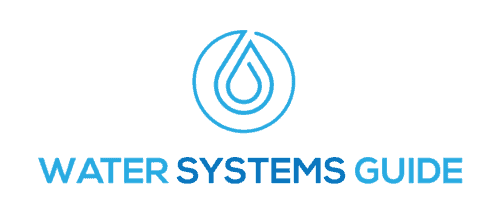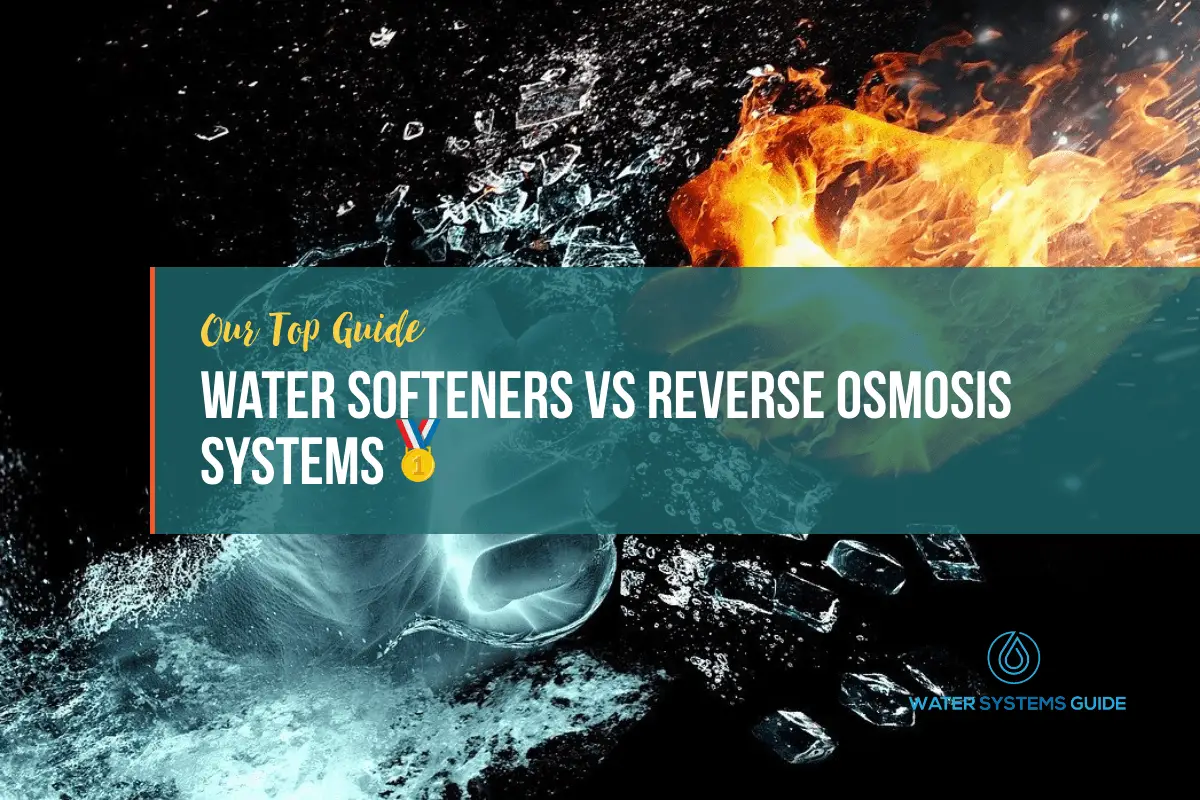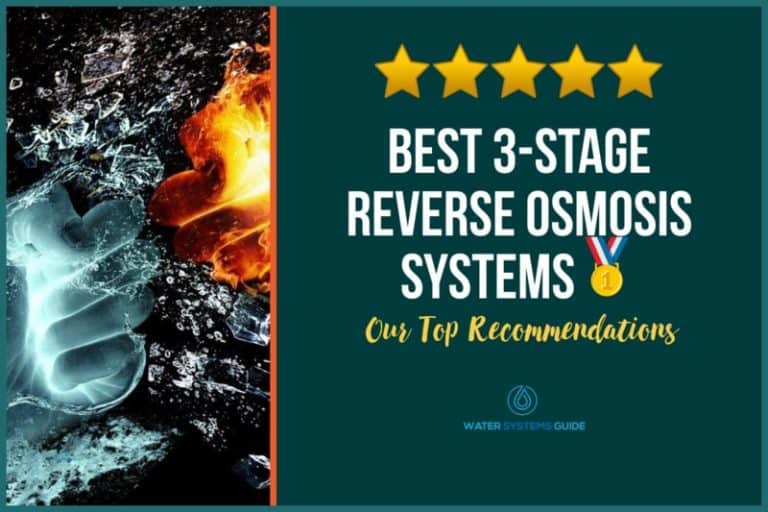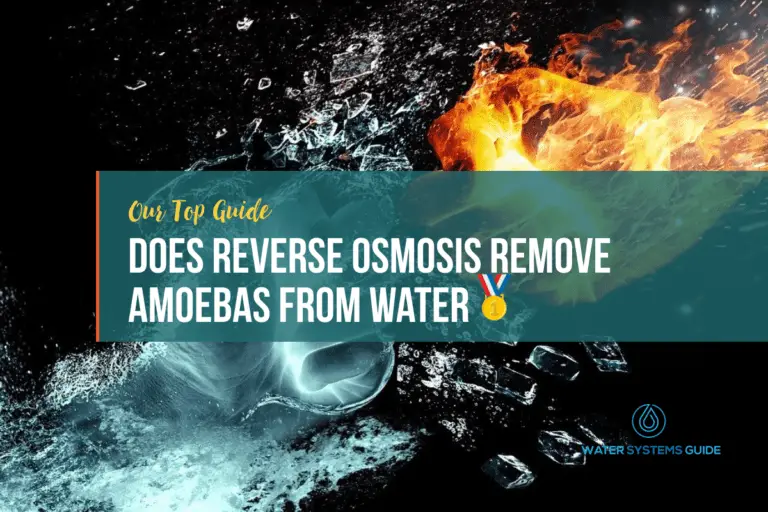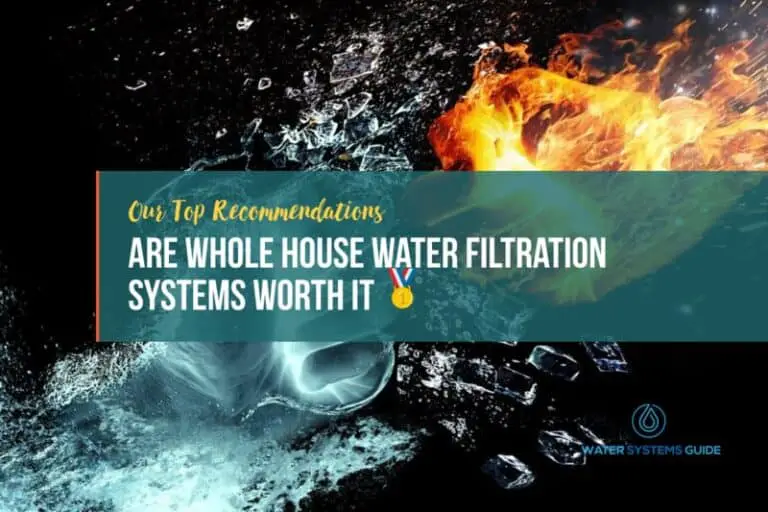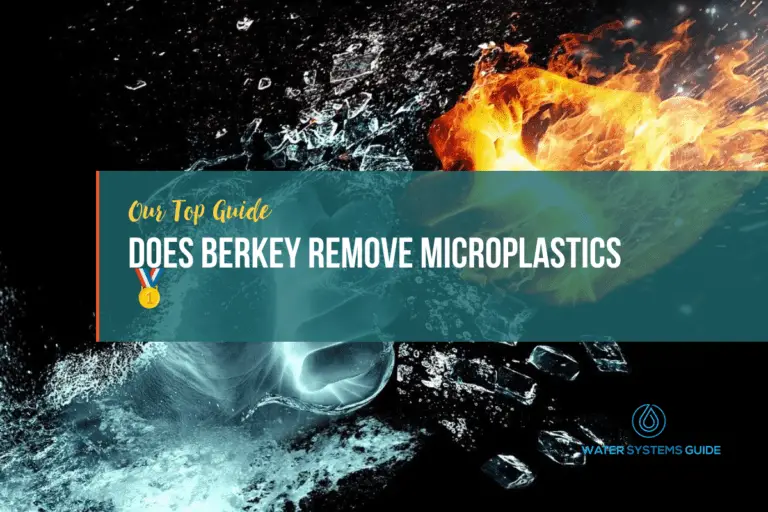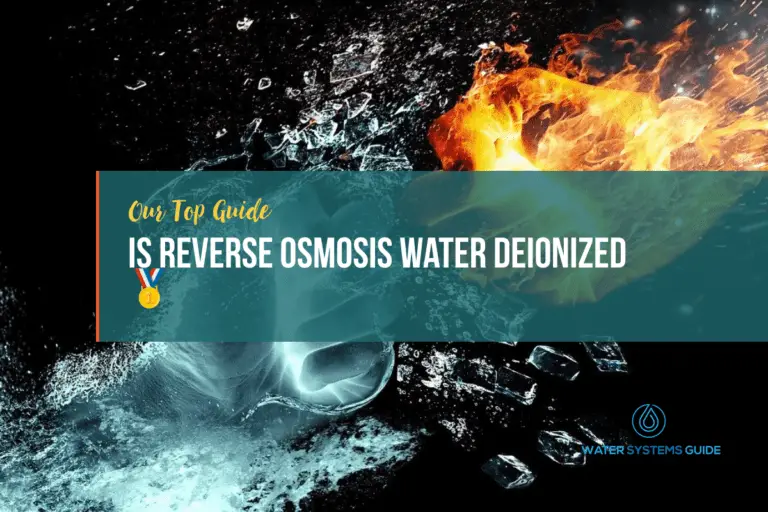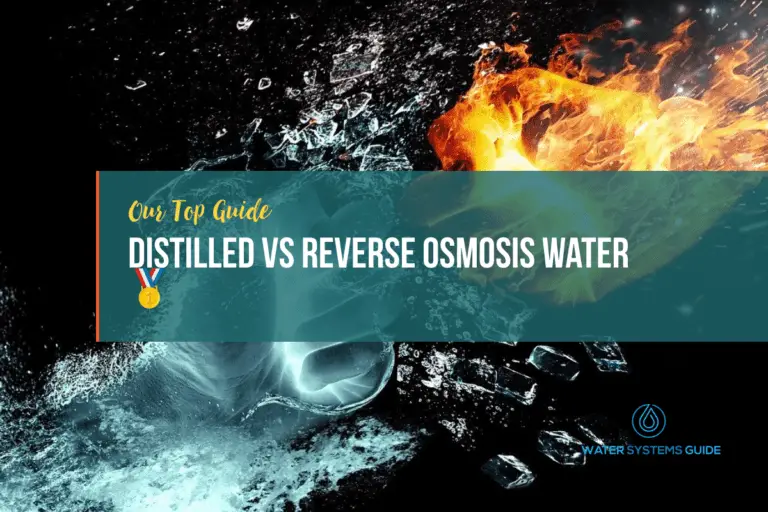Water Softeners VS Reverse Osmosis Systems
There are many ways to improve the quality of your water, but two of the most popular methods are water softeners and reverse osmosis systems. So, which is better?
What is a Reverse Osmosis and Water Softener System?
Reverse osmosis is a process that removes minerals and other dissolved contaminants from water. Water softeners, on the other hand, work by exchanging ions in the water with ions from a salt solution. Both methods can effectively remove contaminants from water, but reverse osmosis is generally considered to be more effective.
However, often the membranes which are used within RO systems are quite weak, and so these systems often have trouble lowering calcium and magnesium levels to an adequate level, making the water quite hard. With that being said, a water softener can be installed alongside the reverse osmosis system to help reduce the hardness of the water.
Which is Best? A Water Softener or Reverse Osmosis System?
There are many factors to consider when deciding which water treatment system is best for your home. Firstly, it’s important to ask yourself, what’s the goal here? Why are you looking to get such a system? Some reasons include:
- To generally get clean water through water filtration
- To get better tasting water for drinking
- To either serve one tap or get a whole house system, which obviously affects water throughout your home
- To balance mineral levels due to hard water
- To generally improve the quality of the water
- To remove contaminants in water
All of these reasons are valid, and the answers to these questions will direct you best on which one is more ideal for your needs.
Water softeners and reverse osmosis systems both have their pros and cons. Water softeners are typically more affordable and require less maintenance than reverse osmosis systems.
However, reverse osmosis systems are more effective at removing impurities from water, including minerals, bacteria, and chemicals.
Although a reverse osmosis system will soften water in addition to filtering it, filtering hard water continuously will shorten the lifespan of a RO membrane. As a result, a reverse osmosis system can theoretically take the place of a water softener, but it won’t be the best option, particularly if your water has issues with hardness (related to magnesium and calcium).
Ultimately, the best system for your home depends on your budget and your specific water quality needs.
it will waste a lot of water, so water softeners are often a more economical solution if your water has a hardness problem. If your water has a strange taste or smell due to contaminants beyond minerals, you may need a reverse osmosis system or other filtration system to fully filter the water.
What’s the difference between water softeners and RO systems?
Water softeners work by exchanging hard minerals for sodium ions. This process helps to prevent scale buildup and makes your water feel softer.
Reverse osmosis systems, on the other hand, remove a wide variety of contaminants from your water using a semipermeable membrane.
Both water softeners and reverse osmosis systems have their pros and cons. Water softeners are typically more affordable and easier to maintain, but they don’t remove as many contaminants as reverse osmosis systems. Reverse osmosis systems are more expensive and require more maintenance, but they provide better filtration and can even improve the taste of your water.
Ultimately, the best system for you depends on your budget and your specific needs. If you’re looking for an affordable option that can help to prevent scale buildup, a water softener is a good choice. If you want the highest quality water possible, a reverse osmosis system is the way to go.
What are the Benefits of Using a Water Softener?
There are many benefits to using a water softener, including:
- Reduced scaling: Scaling is the build-up of mineral deposits on surfaces exposed to hard water. This can cause problems with plumbing, appliances, and other equipment. Softening your water can help reduce scaling and extend the life of your pipes and appliances.
- Easier cleaning: Hard water can make cleaning difficult, as it can leave behind soap scum and mineral deposits. Soft water can help make cleaning easier, as it dissolves soap more easily and rinses away dirt and grime more effectively.
- Improved lathering: Hard water can make it difficult to get a good lather when washing your hair or clothes. This is because the soap doesn’t dissolve as well in hard water. Softening your water can help improve lathering and make your hair and clothes cleaner.
- Softer skin and hair: Hard water can dry out your skin
What are the Benefits of Using a Reverse Osmosis System?
Reverse osmosis is a technology that is used to remove contaminants from water. It works by passing water through a semi-permeable membrane, which allows water molecules to pass through but not larger molecules such as contaminants.
This process can remove up to 99% of impurities from water, making it much safer and healthier to drink. Additionally, reverse osmosis can improve the taste and quality of water by removing unpleasant odors and flavors.
Is Reverse Osmosis Water Hard or Soft?
Reverse osmosis water is technically soft water, because it has had minerals removed from it. However, depending on the source of the water and the quality of the reverse osmosis system, the water may still have some hardness to it.
Can You Use a Reverse Osmosis System with a Water Softener?
As we’ve mentioned above, absolutely.
This will mean that your RO system membranes have a longer lifespan, and in-turn makes sure that your drinking/shower water isn’t so “hard” with unbalanced magnesium and calcium levels.
Installing a water softener or RO system
Water softener and a reverse osmosis system cost?
The cost of a water softener will vary depending on the size and type of unit, as well as the features it offers. A basic unit may cost as little as $200, while a high-end model with all the bells and whistles could cost $1,500 or more.
Reverse osmosis systems are typically more expensive than water softeners, with costs ranging from $500 to $2,000 or more. The price will depend on the size of the unit, the quality of the filtration system, and other factors.
What are the best water softeners and reverse osmosis systems?
There are many systems on the market, however, we’d recommend using systems which can be easily integrated with each other. Therefore, it’s wise to use the same brand for the water softener which you are using for the RO system.
If you haven’t got a water softener or reverse osmosis system, then check out the Aquasure whole house water softener and RO water filter bundle, it has great reviews, is designed to be integrated with it being manufactured by the same brand, and you’re going to get a discount with it being a bundle.
Conclusion
It’s clear that water softening and reverse osmosis systems integrate well together, and the most efficient way to use them is to connect the water softener to your home’s main water supply line and then connect the reverse osmosis system directly to your drinking water faucet.
